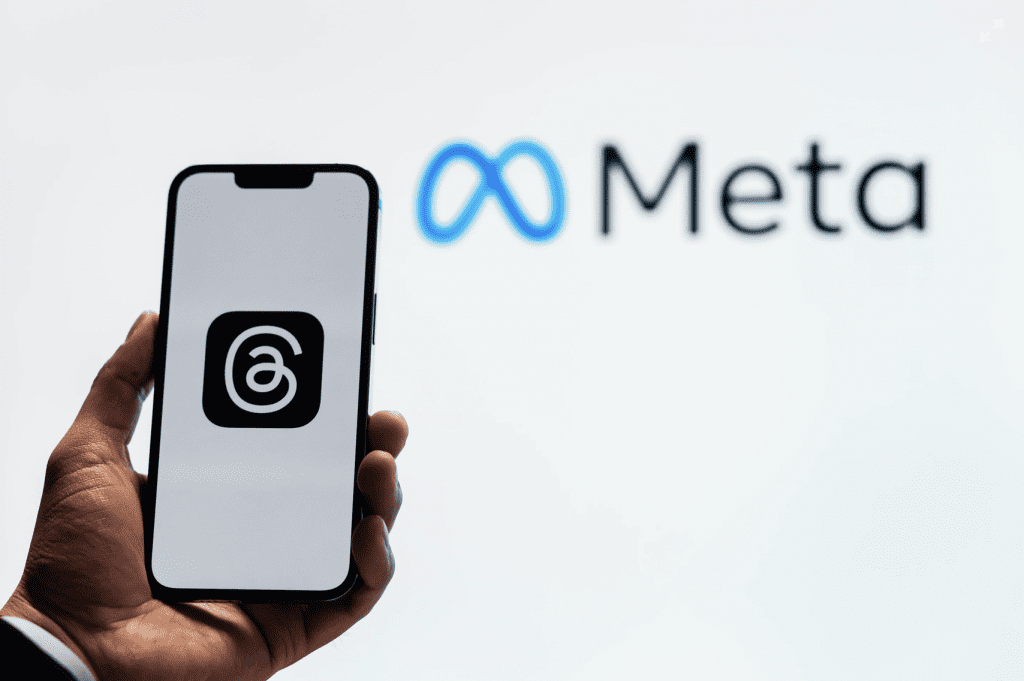After tentatively siding with Meta Platforms in the latest round of a copyright lawsuit waged against it over the training of its AI models, a California federal judge has dismissed all but one of Paul Tremblay, Sarah Silverman, and Christopher Golden’s claims against the Facebook and Instagram owner. In a November 20 order, Judge Vince Chhabri of the U.S. District Court of the Northern District of California granted Meta’s motion to dismiss all of the plaintiffs’ claims “except the one alleging that the unauthorized copying of [their] books” – including Sandman Slim, Ararat, and The Bedwetter – “for purposes of training [its foundational AI model] LLaMA constitutes copyright infringement.”
Setting the stage in his four-page order, Judge Chhabri highlighted two key theories of copyright liability set forth by the plaintiffs in their headline-making lawsuit: (1) The LLaMA (Large Language Model Meta AI) models, themselves, are infringing derivative works of their copyright-protected books “because the ‘models cannot function without the expressive information extracted’ from [their] books” and (2) The LLaMA outputs are derivative works, and thus, amount to vicarious copyright infringement.
Derivative Works Claims – Shooting down both arguments, Judge Chhabri states that the first theory is “nonsensical” because there is “no way to understand the LLaMA models themselves as a recasting or adaptation of any of the plaintiffs’ books.” (In order to be a derivative work, a work must be “‘based upon one or more preexisting works’ in any ‘form in which a work may be recast, transformed, or adapted.’”) The court was similarly unpersuaded by the plaintiffs’ second theory on the basis that the complaint “offers no allegation of the contents of any output, let alone of one that could be understood as recasting, transforming, or adapting the plaintiffs’ books.”
Without “any plausible allegation of an infringing output,” there can be no vicarious infringement, according to the court, which states that the plaintiffs “are wrong to say that, because their books were duplicated in full as part of the LLaMA training process they do not need to allege any similarity between LLaMA outputs and their books to maintain a claim based on derivative infringement.” In furtherance of his assertion that the plaintiffs need to allege and ultimately prove that the outputs “incorporate in some form a portion of” their books, Judge Chhabri cites fellow N.D. Cal. Judge William Orrick’s October decision in Andersen v. Stability AI Ltd., in which he stated that “an alleged infringer’s derivative work must still bear some similarity to the original work or contain the protected elements of the original work.”
DMCA – Turning to the plaintiffs’ Digital Millennium Copyright Act (“DMCA”) Section 1202(b) claims, the court found that these claims must also be dismissed, as “there are no facts to support the allegation that LLaMA ever distributed the plaintiffs’ books, much less did so ‘without their [copyright management information].’” This is fatal to the plaintiffs’ Section 1202(b) claims, per Judge Chhabri, who notes that the allegation that Meta violated Section 1202(a)(1) of the DMCA also fails because the plaintiffs “have not plausibly alleged that LLaMA is an infringing derivative work.”
Unfair Competition Law – The court similarly dismissed the plaintiffs’ California unfair competition claim, stating that to the extent that it is based on the plaintiffs’ surviving claim for direct copyright infringement, it is preempted. On the other hand, if it is based on allegations of fraud or unfairness separate from the surviving copyright claim, “the plaintiffs have not come close to alleging such fraud or unfairness.”
Unjust Enrichment and Negligence – Finally, the plaintiffs allege that the use of their books to train LLaMA unjustly enriched Meta. The problem, according to the court, is that “this claim relies on the same rights contained in the Copyright Act.” At the same time, the plaintiffs argue that Meta breached a duty of care “to act in a reasonable manner toward others” by copying their books to train LLaMA. “Again, the duty alleged (to the extent it could be thought to exist) is premised on the rights protected by the Copyright Act and thus, any claims for breach of this duty are preempted,” Judge Chhabri found. And even if the negligence claim was not preempted, the “economic loss doctrine” would apply.
Next steps: The court dismissed all of the foregoing claims with leave for the plaintiffs to amend their complaint except for the negligence claim which is dismissed with prejudice. And, of course, Meta did not seek dismissal of (and will inevitably argue fair use in response to) the authors’ core copyright infringement claim – that Meta engaged in infringement by using their copyright-protected books as training materials for its LLaMA model – and thus, the judge previously held that discovery can go forward on that claim.
The case is Kadrey, et al. v. Meta Platforms, Inc., 3:23-cv-03417 (N.D. Cal.).














